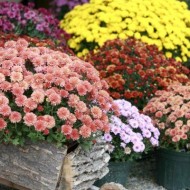How to safely cover chrysanthemums for the winter without expensive fixtures
Content
Winter hardiness classification
Chrysanthemum is one of the brightest and most beautiful garden crops that is grown in all regions of Russia. To date, domestic and foreign breeders have bred more than a hundred species and varieties of this amazingly beautiful flower. The varieties of domestic selection are distinguished by winter hardiness and endurance, but foreign cultures are fragile and tender.
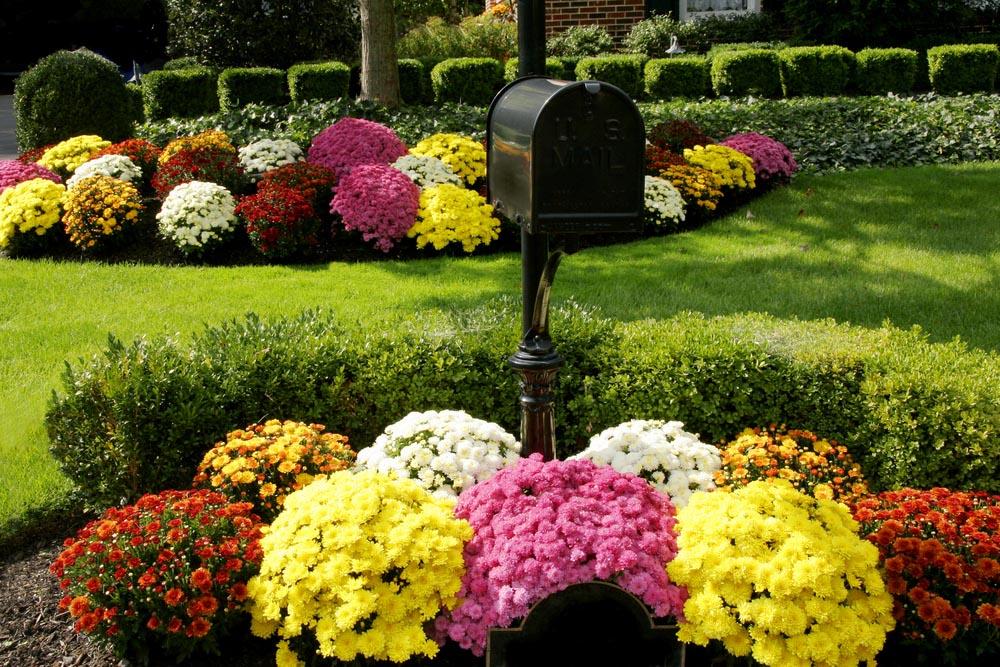
Small-flowered Korean chrysanthemum, which is popularly called "oak", winters well. Freezing of shoots occurs with little snow and severe winters. For cold regions, planting of Ryzhik, Umka and Yunost varieties is recommended. Large-colored bouquet chrysanthemums often freeze and do not recover with the arrival of spring. However, with a well-organized shelter, such varieties as Flamingo, Gazelle, Sonechko and Anna Yaroslavna winter well. The chrysanthemum ball is considered the weakest and most unstable to winter frosts. Among Russian gardeners, the varieties Ares, Trike White and Natalie are popular.
Video: "Preparing and sheltering chrysanthemums for the winter"
From this video you will learn how to properly cover garden flowers on the eve of the winter cold snap.
Autumn work front
Shelter for chrysanthemums begins with the preparation of flowering crops for the coming cold and frosty weather. After the garden area has been cleared of weeds, tops, fallen leaves and other vegetation, you can proceed to inspect the plants for signs of pests and diseases. Most harmful insects and pathogens of fungal and bacterial infections successfully overwinter with garden crops. With the arrival of spring, the activity of pests increases. For this reason, it is recommended to carry out the autumn preventive treatment of the garden with special microbiological preparations that protect against the spread of insects and diseases.
Autumn is the time for watering and feeding the vegetation in the garden. In order for flowering crops to overwinter well, they need moisture and a variety of nutritious and beneficial micronutrients. If the autumn turned out to be sparse in precipitation, the soil should be thoroughly moistened. At the same time, try to avoid excess moisture in the soil, since some varieties of chrysanthemum tolerate drought more easily than waterlogging of the soil.
After watering, mineral fertilizers are applied under each chrysanthemum bush. For the autumn period, you should choose complex potassium-phosphorus supplements, which increase the vitality of plants and maintain their healthy and strong appearance.

Preparing chrysanthemums for winter involves pruning shrubs. Autumn pruning of chrysanthemums is carried out with the onset of the first cold weather. The main stems are cut at a level of 10-15 cm from the ground, short young shoots are left intact.You need to cut off not only shrubs wintering on the street, but also chrysanthemums, which are removed to the greenhouse, basement or cellar.
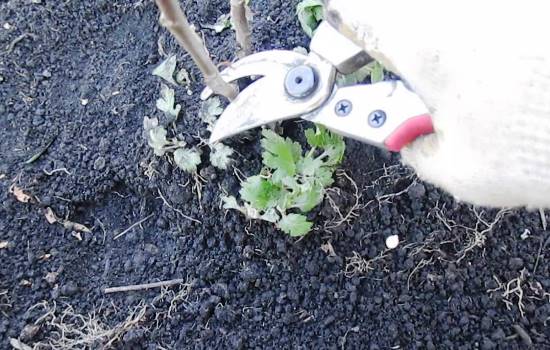
What to do for safety
You should not rush with additional shelter for chrysanthemums, you should be guided by the weather forecast. Warming too early can lead to damping out of flowering crops.
Mulching
The easiest way to cover plants for the winter is to mulch. Wood bark and sawdust, hay and straw, fallen leaves and spruce branches, pieces of thick cardboard and the remains of covering material are used as mulch. The mulching layer should be 12–17 cm high.
This wintering method is suitable for the southern regions. If winter in the suburbs and other central regions is warm and snowy, chrysanthemum bushes do not need additional insulation.
Underground storage
The method, known among gardeners under the name "storage under the ground", is used in the case of little snow and cold winters. After flowering, only peduncles and dried stems are cut, the remaining branches are collected in a bunch. The bundle tied with twine is neatly bent to the ground, sprinkled with dry sand and opal foliage, and the top is insulated with any non-woven covering material. To shelter flowering crops, you can use burlap, agrofibre, geotextile, white polypropylene bags or lutrasil.
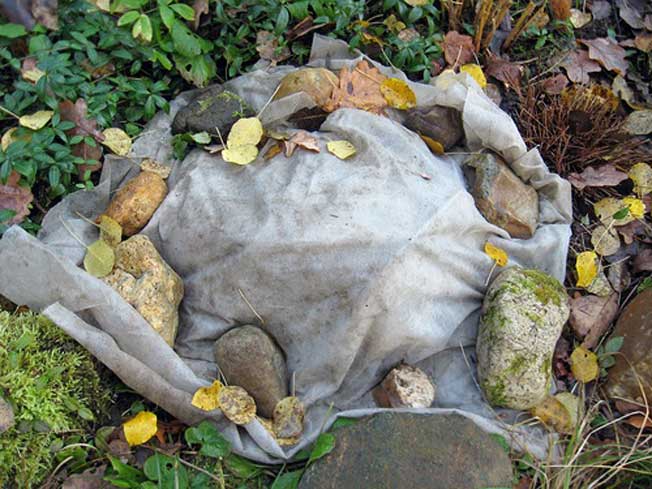
Creating a dome
The most effective method of protecting chrysanthemums from frost is considered to be a dome or tunnel structure. Branches of ornamental shrubs are tied into a bunch and bent to the ground, a layer of opal foliage, peat, sawdust and sand is poured on top, or covered with pine branches. A structure in the form of a dome or an elongated tunnel is placed on top of sheltered plants and fixed on the sides with wooden beams, stones or bricks.
The dome and tunnel for storing flowering crops is a frame structure made of curved metal slats and a covering material stretched from above. Storage under a dome / tunnel is often used by gardeners in Siberia and the Urals.
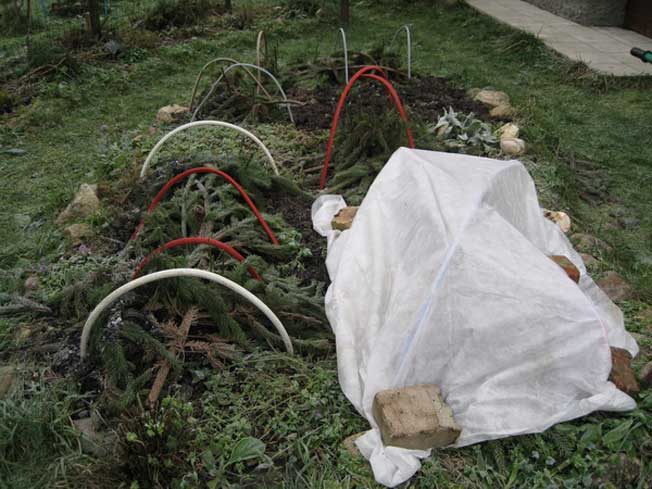
Winter storage
When choosing a storage method for flowering horticultural crops, it is recommended to take into account the varietal characteristics of plants and the peculiarities of the climatic zone of growth. This issue is especially acute in the northern and eastern regions, where winters are distinguished by their severity and duration.
Most gardeners in Siberia and the Urals prefer not to leave chrysanthemums outdoors for the winter. So, let's figure out where to store flowers dug out of the ground.
In the trench
You need to prepare a pit for storing flowering crops in advance. The optimal place for digging a trench is a hill protected from wind and cold. Undesirable close location of groundwater. First, a ditch is dug with a depth of 0.5–1 m, the bottom and walls of which are insulated with expanded clay, boards or bricks.
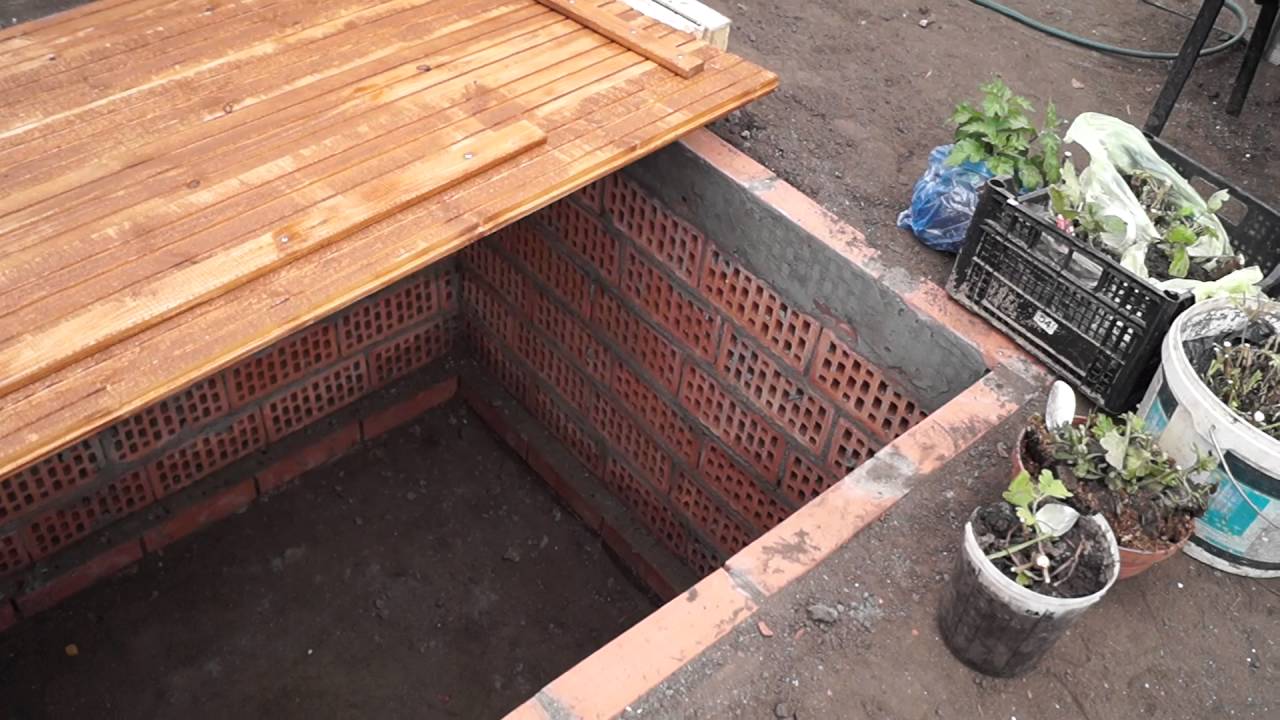
After excavation from the ground, chrysanthemum seedlings are sent for wintering in previously prepared trenches. Plants are laid directly on the floor and covered with nutritious soil. The trench is closed with boards, foam, slate and other covering materials.
In the cellar
Ornamental crops growing in open ground are dug out in such a way as not to damage the root system. Chrysanthemums, along with the remains of the soil, are transferred to the cellar and placed on wooden shelves or directly on the floor. From above, the plants are covered with a covering material. Do not forget to monitor the microclimate in the cellar: lack of fresh air can lead to mold.
In a container
For storing seedlings of flowering crops, plastic boxes, buckets and other unnecessary containers are used. Peat and coarse river sand are poured inside the container with chrysanthemum in a 1: 1 ratio. You can store flowers in basements, sheds, insulated balconies and cellars, where the air temperature ranges from + 1 ... + 5 ° C.
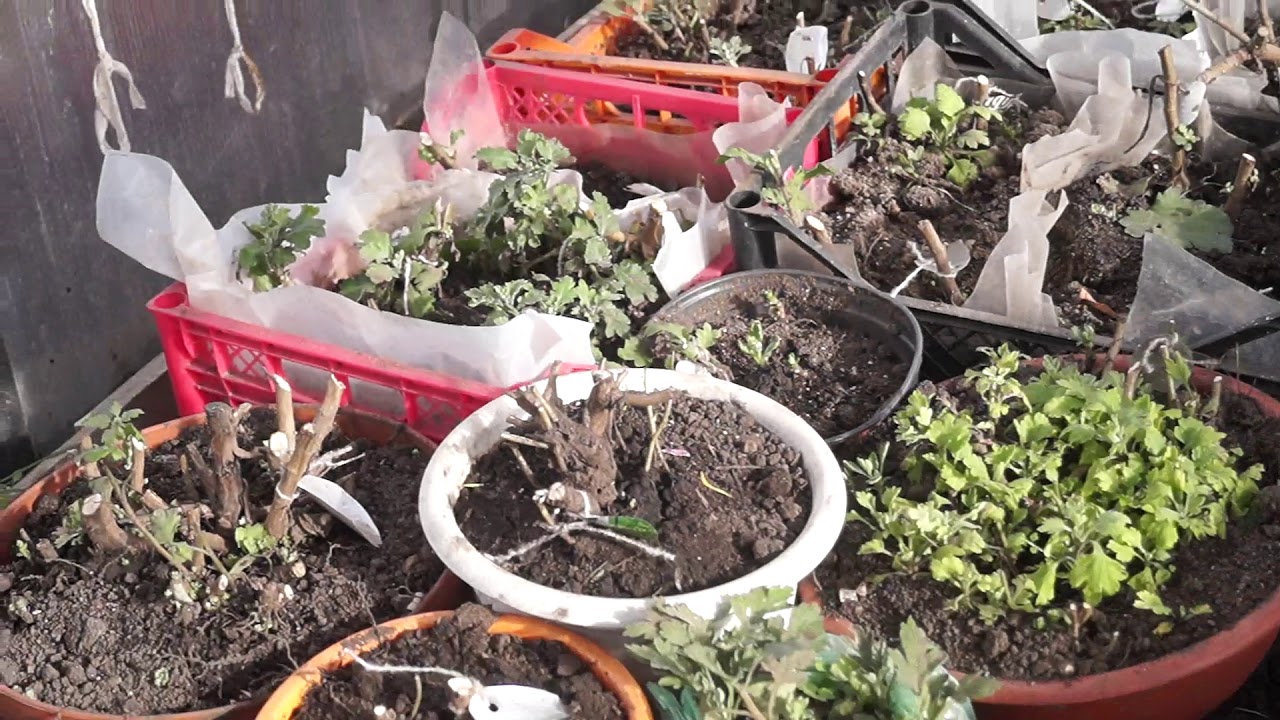
The main condition for storing chrysanthemums is the stability of the microclimate.If it is impossible to create favorable wintering conditions in the open field, it is better to dig up the flowers and move them to a more secluded place.
Features of caring for dwarf and spherical varieties
The popularity of chrysanthemums is growing from year to year, breeders are constantly working on developing new varieties and varieties of this decorative culture. Dwarf and globular chrysanthemums have appeared relatively recently.
Spherical chrysanthemums growing in the open field are dug up, slightly dried in the shade, cleaned of dry soil and stored all winter in containers with straw and sawdust. Outdoor wintering is allowed only in the southern regions, where the air temperature rarely drops below zero. But in order for ornamental shrubs to successfully overwinter, they need to be mulched and covered with pine spruce branches.
As for dwarf chrysanthemums, these decorative crops are intended for indoor floriculture. In the regions of central Russia, this type of chrysanthemum is cultivated mainly on balconies and glazed loggias. At the end of the flowering period, the bushes are cut off, leaving stems no more than 8-10 cm long. The recommended air temperature for the "rest" period is +8 ° C. Watering frequency is determined by humidity and temperature conditions.
Newbie mistakes
Caring for chrysanthemums in the fall and preparing flowering crops for wintering will not take much time from an experienced gardener, which cannot be said about beginners. Ignorance or violation of the technology of preparation and shelter of ornamental plants is the main reason for the death of flowers.
The most common mistake is the introduction of nitrogen-containing preparations into the soil. The plant throws all its strength into building up the vegetative mass, while its endurance and winter hardiness decrease.
Untimely pruning also negatively affects the varietal characteristics of the crops grown. Please note that there is no single scheme for the correct wintering of chrysanthemums. Some varieties can winter outdoors, others need to be carefully insulated, and still others must be dug up and stored in cellars.
In order for the flowers to successfully overwinter, it is recommended to select planting material in accordance with the climatic zone of growth and carefully study the varietal characteristics of the plants cultivated in the garden.

